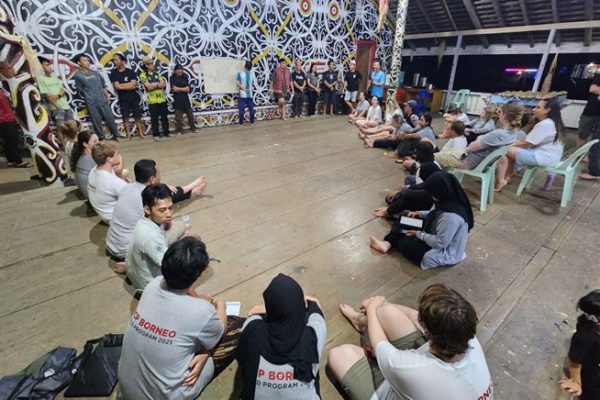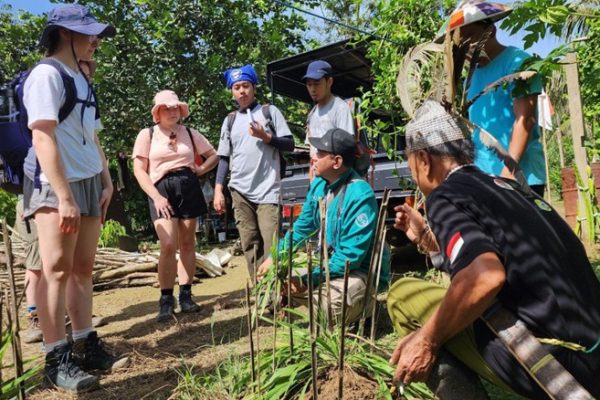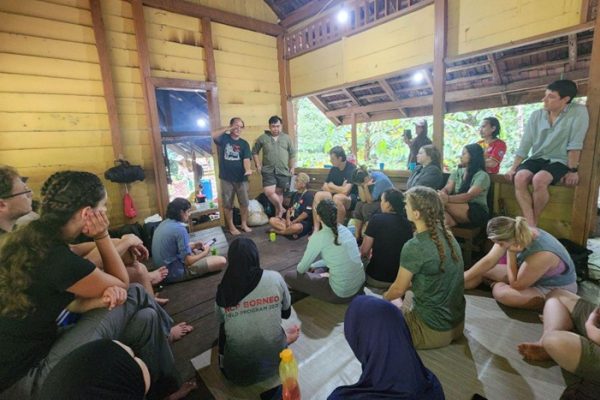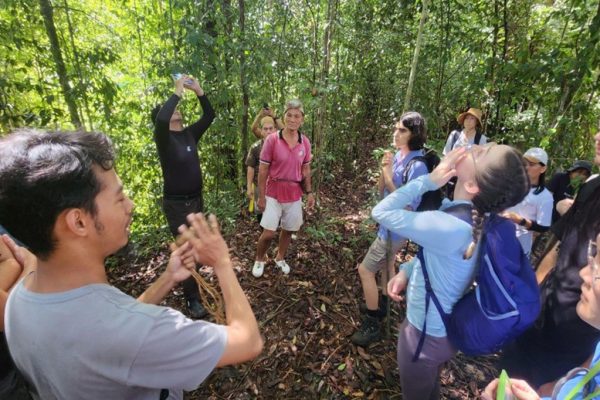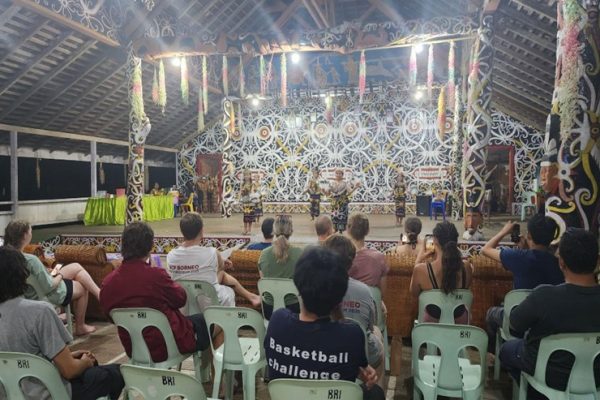The Faculty of Biology, Universitas Gadjah Mada (UGM), in collaboration with Western Sydney University (WSU), successfully conducted the International Summer Course (ISC) program in Setulang Village and the Tane Olen Community Forest, Malinau Regency, North Kalimantan. This program followed a series of academic and cultural exchanges held earlier in Yogyakarta and Tarakan.
On Sunday, January 26, 2025, ISC participants arrived in Malinau and continued their journey to Setulang Village. The UGM delegation included two faculty members ; Dr. Rury Eprilurahman and Mukhlish Jamal Musa Holle, M.Env.Sc, D.Phil. and six students. The WSU delegation, consisting of two staff members, Dr. John Hunt and Louise Graham, and 16 students.
The program commenced with a warm welcome from the Setulang community, featuring traditional dance performances and remarks from the Village Head, Mr. Saleh Wang. Field activities began the following day with observations of rice fields and home gardens owned by local residents, including an introduction to farming system and the diversity of plant species cultivated in the Mr. Philius’s home garden, a village elder.
On January 28, the program moved to the Tane Olen Community Forest, a lowland dipterocarp forest known for its rich biodiversity. Participants traveled by pickup and continued on foot along river trails to two basecamps: Lepo Kalung and Waterfall Basecamp. From January 28 to February 5, daily activities included birdwatching, jungle trekking, herpetofauna observation (herping), and thematic discussions with local guides and researchers.
Dr. Rury Eprilurahman led herpetofauna identification sessions and delivered a herpetology sharing session on January 29. On January 30, local guides introduced participants to useful plant species during a trek through riparian and hilly zones. That evening, an ethnobotany discussion was held between ISC participants and the local community.
Dr. Rury Eprilurahman led herpetofauna identification sessions and delivered a herpetology sharing session on January 29. On January 30, local guides introduced participants to useful plant species during a trek through riparian and hilly zones. That evening, an ethnobotany discussion was held between ISC participants and the local community.
A key highlight took place on February 1 with a dialogue involving village elder Mr. Philius, Village Head Mr. Saleh Wang, and forest management representatives Andrew and Ran. The discussion focused on the history of Setulang, community conservation efforts, and sustainable forest management practices in Tane Olen.
The ISC program concluded on February 5 with a closing ceremony in Setulang Village. The event was attended by the Subdistrict Head of South Malinau Hilir, village officials, and community leaders, and featured traditional dance performances by residents of all ages.
This international collaboration not only enhanced cross-cultural academic exchange but also embodied the principles of Sustainable Development Goals (SDGs) 11 (Sustainable Cities and Communities), 14 (Life Below Water), and 15 (Life on Land).

